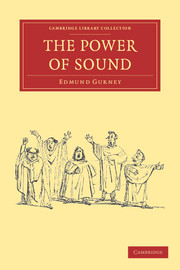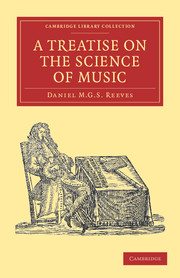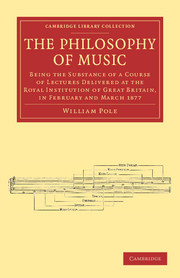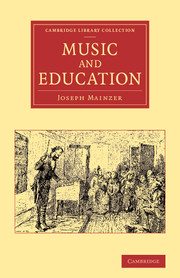The Power of Sound
Edmund Gurney (1847–88) is today best known for his work on psychical research, but from a young age he harboured the ambition to be a composer and performer. Frustrated in this aim, he began writing on the philosophy and psychology of music. This work of 1880 was an attempt to apply a strictly scientific method of enquiry to music, and it is regarded as one of the most important and original treatises from the nineteenth century on musical aesthetics. Gurney discusses the sensations of pleasure and pain in relation to the senses, and goes on to examine how the listener differentiates between 'noises' and 'tones'. He explores whether there is an elemental difference between a 'good' and a 'bad' melody, the ultimate futility of the critic trying to describe music, and the 'moral' conclusion to be drawn from a preference for the music of Rossini over that of Beethoven.
Product details
October 2011Paperback
9781108038638
578 pages
229 × 152 × 33 mm
0.84kg
Available
Table of Contents
- Preface
- 1. The organs and impressions of the higher senses
- 2. Unformed sound
- 3. The elements of a work of art
- 4. Abstract form as addressed to the eye
- 5. Abstract form as addressed to the ear
- 6. Association
- 7. The factors of melodic form
- 8. Melodic forms and the ideal motion
- 9. The relations of reason and order to beauty
- 10. Further remarks on musical form and 'subject'
- 11. Polyphony and harmony
- 12. Material and colour
- 13. The two ways of hearing music
- 14. Music as impressive and music as expressive
- 15. The suggestion by music of external objects and ideas
- 16. Music in relation to intellect and morality
- 17. Further peculiarities of music's nature and position
- 18. Music in relation to the public
- 19. The sound-element in verse
- 20. Song
- 21. The speech theory
- 22. Opera
- 23. Musical criticism
- Appendices.






